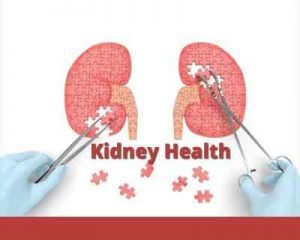- Home
- Editorial
- News
- Practice Guidelines
- Anesthesiology Guidelines
- Cancer Guidelines
- Cardiac Sciences Guidelines
- Critical Care Guidelines
- Dentistry Guidelines
- Dermatology Guidelines
- Diabetes and Endo Guidelines
- Diagnostics Guidelines
- ENT Guidelines
- Featured Practice Guidelines
- Gastroenterology Guidelines
- Geriatrics Guidelines
- Medicine Guidelines
- Nephrology Guidelines
- Neurosciences Guidelines
- Obs and Gynae Guidelines
- Ophthalmology Guidelines
- Orthopaedics Guidelines
- Paediatrics Guidelines
- Psychiatry Guidelines
- Pulmonology Guidelines
- Radiology Guidelines
- Surgery Guidelines
- Urology Guidelines
Soon water to treat progression of polycystic kidney disease

In a trial, known as PREVENT-ADPKD it is being explored if consumption of adequate and right amount of water prevents progression of adult polycystic kidney disease (ADPKD) to kidney failure. ADPKD is an inherited disease in which the kidneys deteriorate because of cysts that grow and destroy healthy tissue.The researchers are confident that a positive study result will show that water is a cheap, safe and effective treatment.This will be a cost-effective and safe treatment of polycystic kidney disease which may soon be available courtesey this new trial.
The study team - led by Dr Annette Wong, Carly Mannix, Professor David Harris and Dr Gopi Rangan - at the Westmead Hospital and the Westmead Institute for Medical Research are optimistic that drinking water is an effective treatment to reduce kidney cyst growth in ADPKD patients.
"Water stops the hormone that makes these cysts grow, so ensuring you aren't thirsty reduces the chance of cysts growing,"Dr Rangan said.
"This is important because there is no cure for polycystic kidney disease. More than 50 percent of patients eventually develop kidney failure, requiring dialysis or kidney transplantation.
"If successful, our approach could have major benefits for the health of people with ADPKD. If we can slow the disease at an early stage, we could potentially prevent kidney failure occurring altogether.
The team's previous research showed that increased water intake was highly effective at reducing cyst growth in animals with polycystic kidney disease.
This new study protocol, published in BMJ Open, will be the first of its kind to provide evidence on whether prescribed water intake is an effective treatment for ADPKD in humans. The three-year randomized controlled clinical trial will use MRI to assess the rate of cyst growth in the kidney throughout the study.
Patients with ADPKD develop hundreds of cysts in the kidney, which form in early childhood and grow by five to ten percent each year. It is the most common genetic kidney disease in adults, affecting one in every 2500 individuals. More than 2000 Australians with ADPKD currently receive dialysis or need a kidney transplant.
More than 240 people have already enrolled in the trial, and full results will be available in 2020.

Disclaimer: This site is primarily intended for healthcare professionals. Any content/information on this website does not replace the advice of medical and/or health professionals and should not be construed as medical/diagnostic advice/endorsement or prescription. Use of this site is subject to our terms of use, privacy policy, advertisement policy. © 2020 Minerva Medical Treatment Pvt Ltd